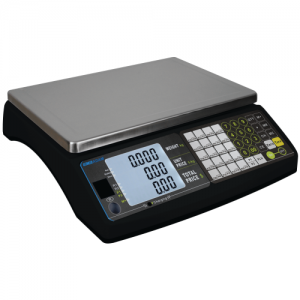Industrial scale calibration services are essential for companies that rely on accurate measurements of weight as a function of business. As the performance of any scale will diminish over time, periodic scale calibration ensures the integrity of the readings. Scales that are not regularly calibrated can be costly for businesses. Regular servicing and scale calibration matter to avoid costly errors and to assure your customers that your weighing systems are accurate and reliable. It’s crucial that your scales are as accurate as possible.
What is Scale Calibration?

For the scale calibration to be valid, the weights must also be calibrated and certified by the state, national or international Weights, and Measurements agency or department. In the U.S., the Weights and Measures Division is under the National Institute of Standards and Technology (NIST). To promote uniformity in U.S. weights and measures, traditionally, NIST has provided a set of physical objects, such as weights and scales, to each state to provide uniform standards for quantities in mass and volume.
Why Should Industrial Scales be Calibrated?
Industrial scales should be calibrated regularly to ensure their accuracy. Not only is this a good business practice for you and your customers, but having accurately calibrated scales ensures your company complies with laws or regulations. Incorrect weight readings due to inaccurately calibrated scales can affect your inventory and your trade with other businesses—undermining customer confidence, causing loss of revenue, excessive shipping costs, and so forth. Whether you’re selling products based on weight or shipping them around the country, if your weight readings are incorrect, they could also lead to legal actions or fines.
How Often Should You Calibrate Your Scales?
Several factors can determine how often industrial scales should be calibrated. The schedule for calibrating your scales will largely be determined by combining the manufacturer’s service recommendations, usage, environmental conditions, and the necessity for accurate weight readings. Scales should also be calibrated when you first open the box. To ensure accuracy, it is best to calibrate your scales in the environment where they are used.
Usage and environmental conditions play an important role in scheduling scale calibration servicing. Scales used once or twice a week under normal conditions would not require scheduling for scales in constant use throughout the day, every day, which can affect their accuracy by normal wear and tear. Industrial scales operating in punishing environments and subjected to volatile temperature ranges, moisture, oils, grime, dust, debris, vibrations, static electricity, or mechanical shock should be calibrated often on a regular maintenance schedule. Depending on the work conditions and usage, certified calibration should be required monthly, quarterly, or annually, with weekly spot checks performed in-house as a quality control measure. Look to the manufacturer’s recommendations, or ask your scale service provider when your industrial scales should be calibrated.
Scheduling Professional Calibration Services
Regular scale calibration is important to achieve accurate measurements consistently. It is necessary because the accuracy and performance of all weighing scales decline over time due to usage and environmental conditions. To ensure the accuracy of your scales, contact Worcester Scale Co. to discuss your scale calibration service needs. Worcester Scale is an ISO/IEC 17025 accredited calibration laboratory that offers various maintenance programs and scale repair services, including weight scale, digital scale, electronic scale, truck scale, and much more.
Have questions? Contact our team! We are happy to help.


Leave a Reply